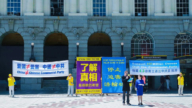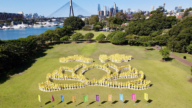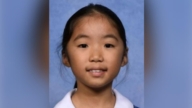【新唐人2011年4月28日讯】澳大利亚总理吉拉德访华,与中共总理温家宝举行了会谈,吉拉德表达了澳大利亚对中国人权记录的担忧。她的担忧包括中国的少数民族政策,宗教自由问题,以及最近中国对人权活动的镇压。不过温家宝暗示,“中国在人权问题上没有后退”。但遭到民众强烈反弹。
澳总理吉拉德首次以总理身份访华。 4月26号,她与温家宝举行了为时45分钟的谈话。
据了解,吉拉德在和温家宝的会谈结束后对媒体记者表示,除了经贸议题外,她也明确的向温家宝表达了澳大利亚在中国人权问题上的态度,她说:“澳大利亚希望中共不要在人权问题上开倒车。” 但温家宝回应,他不认为中国的人权状况是在倒退。
对于温家宝的答复,澳总理是否感到满意呢?吉拉德表示,自己作为澳大利亚总理,以适当的方法提出澳方的观点,这点她已经做到了。
《法新社》26号在《澳总理访华提人权 温家宝否认倒退 民众驳斥》的报导中,提到了中国民众的反应,报导说:他们例举了目前非常典型的案例:自茉莉花革命以来,中共至少抓捕了上百人,并加强对宗教信仰团体打压,艺术家艾未未“失踪”、北京维权律师金光鸿遭到严重迫害,被送进精神病院等,中共既没有道德底线也没有法律底线,又怎么会否认人权倒退?
居住在澳大利亚的独立中文笔会秘书长张小刚,向《美国之音》表示,吉拉德提及人权做的只是表面文章。他说,“这只是一个官式文章而已。”
《美国之音》报导说,就在吉拉德访华前夕,澳大利亚罗伊国际政策研究所4月25号发布的一项民意调查显示,虽然有75%澳大利亚人认为中国的经济发展对澳大利亚有利,但却有将近三分之二的受访者表示,如果中国的实力和影响力提升,澳大利亚的利益未必不会受到伤害。
《澳大利亚人报》23号以“总理呼吁美国提升在亚洲存在感”为题报导说,吉拉德在最近出访日本,同日本首相菅直人会谈时表示,面对中国崛起,美国提升在亚太地区的政治参与,对这一地区的安全至关重要。
报导中提到,中国军费连年增长,让周边的日本和韩国都感到“不安”,他们对中国的所谓“扩张”,非常担心。
《悉尼先驱晨报》22号也以“吉拉德的防御谈话增添中国紧张”为题,报导吉拉德在日本强调,将继续推动澳日安全防务合作,增强同韩国的关系。报导认为,美国在中国周边构建安全网,这将增添中国的不安…。
《路透社》发自北京的电稿分析说:吉拉德与中国(共)领导人的会谈目标,凸显了澳大利亚和其他西方国家面临的尴尬挑战,他们既希望在人权和地区摩擦问题上刺激中共,同时又渴望培养与中国的贸易关系。澳大利亚想在逢迎和抨击中共之间寻找平衡,但尤其棘手。
新唐人记者唐睿、吴慧真综合报导。
Australian PM Spotlights China’s Human Rights
In her visit to China, Australian Premier Julia Gillard
spoke with the Chinese Premier Wen Jiabao .
about her concerns of China’s human rights record,
ethnic minorities issues, religious freedom,
and the treatment of human rights activists.
Wen denied China’s human rights regression.
Julia Gillard spoke with Wen Jiabao on April 26
during her first visit to China as a Prime Minister.
Gillard said her talks focused on trade relations,
as well as human rights issues.
“I did have the opportunity
to raise with Premier Wen issues
associated with Australia’s concerns
with human rights", Gillard told reporters.
“He did indicate his view is China has not taken
a backward step on human rights."
When asked if she was satisfied
with Wen’s response, Gillard replied,
“What we do is raise our concerns and
I’ve done that very clearly with Premier Wen today."
According to AFP’s April 26 report, Wen’s reponse
has deeply disappointed the Chinese public.
The public questions the human rights situation
in China, pointing to recent cases of human rights
violation, including the arrest of Jasmine Rallies’
participants, suppression of religious groups,
the disappearance of Ai Weiwei,
and the persecution of lawyer Jin Guanghong.
Zhang Xiaogang, Secretary General
of Independent Chinese PEN Center told VOA
that he believes Gillard’ mention
of human rights was “only superficial formality”.
According to a recent LOWY institute poll,
79% of Australians believes China’s economic
development will benefit Australia;
yet nearly 2/3 of the people surveyed worried that
the rise of China would pose a threat to Australia.
The Australian reported that during her recent visit
to Japan, Gillard told Japanese Prime Minister
Naoto Kan, it is vital that the U.S. lift its political
engagement in the Asia-Pacific region
to promote security in the face of the rise of China.
Both leaders discussed the “expansion” of China,
which has been increasing its military budget
to the consternation of nearby nations,
including Japan and Korea.
According to Sydney Morning Herald, Gillard
“has moved to strengthen defense ties with Japan
and will seek to elevate links with South Korea,
adding to China’s unease about new U.S.-anchored
security networks emerging on its borders.”
Reuters notes that Gillard’s meetings with Chinese
leaders “highlight the awkward challenges
facing Australia and other Western governments:
the desire to prod Beijing over human rights
and regional friction while nurturing trade ties
with the world’s second biggest economy.”
NTD reporters Tang Rui and Wu Huizhen






























